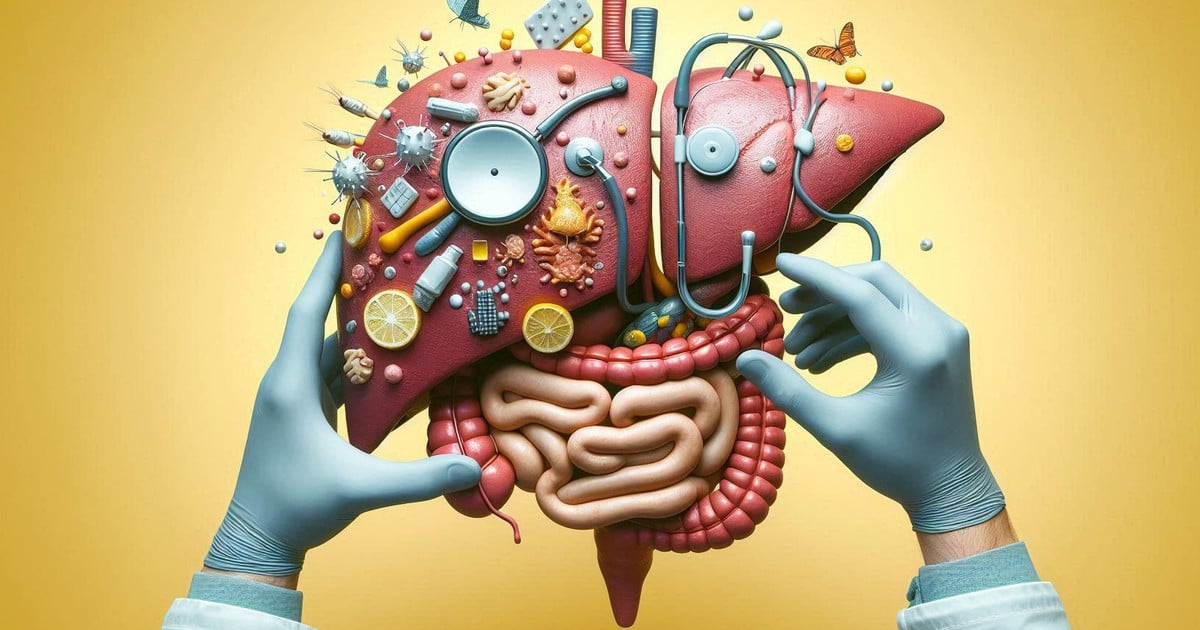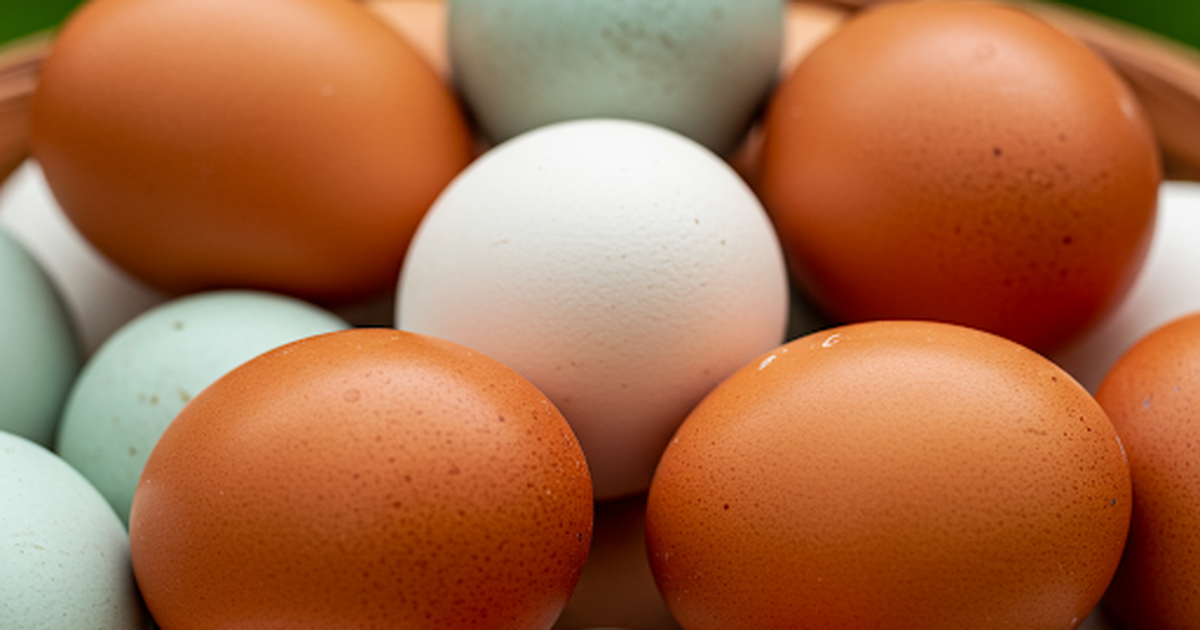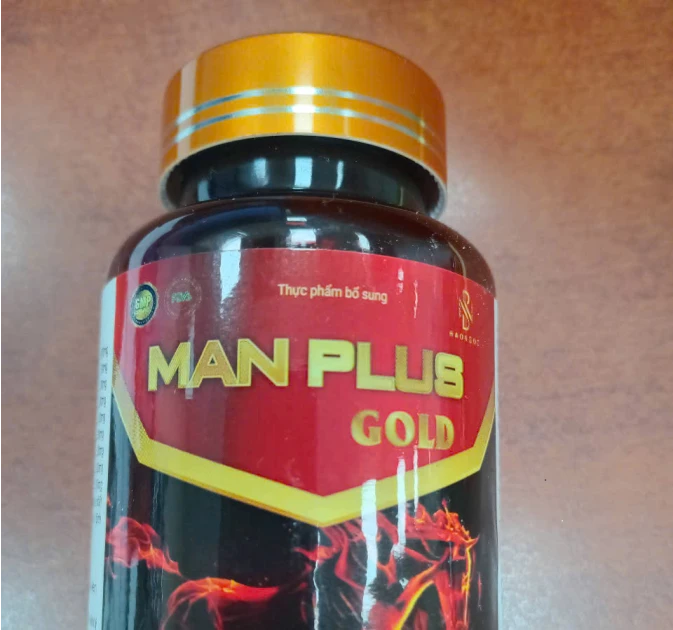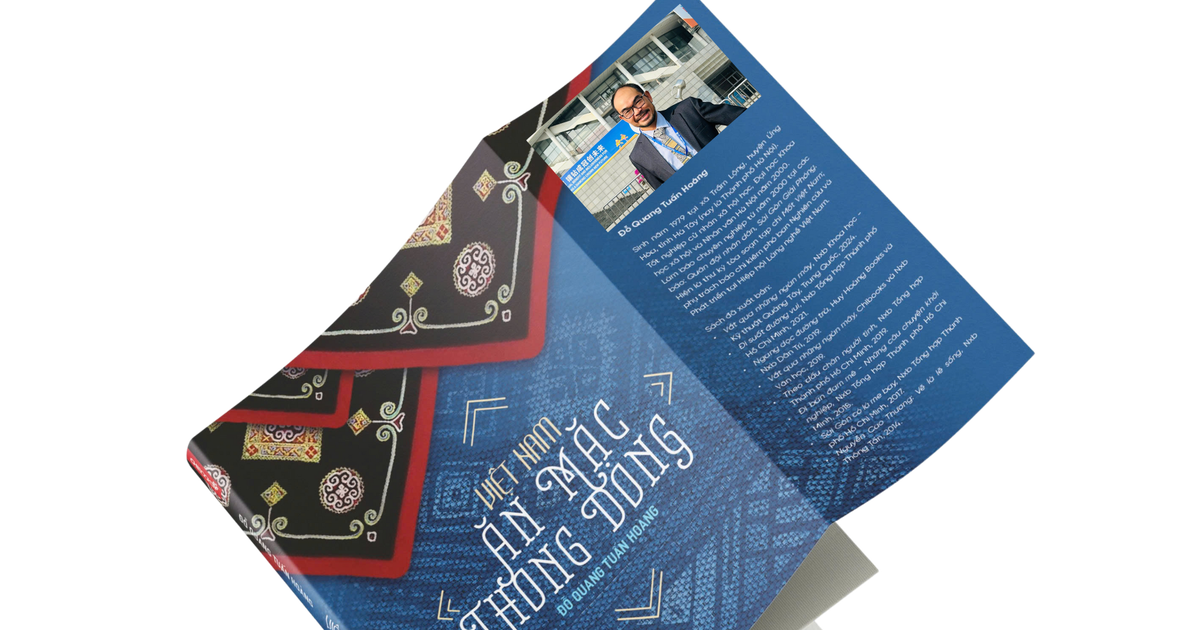Starting the day with health news, readers can also read more articles: What does a sudden craving for bread indicate about health?; Mental disorders in patients with cosmetic skin ; The shape of stool indicates whether the body is healthy or has problems...
Wearing this while walking increases the benefits many times over
Walking is a great exercise for keeping your physical and mental health in check. But if you want to add more benefits to your daily walk, you can try 'rucking', which means carrying a load while you walk.
Ms. Athalie Redwood-Brown, senior lecturer in sports performance analysis, Nottingham Trent University and Ms. Jen Wilson, exercise and health expert, Nottingham Trent University (UK), share great tips to increase the benefits of walking .

If you want to add more benefits to your daily walking exercise, you can try "rucking" - which means carrying extra weight while walking.
Rucking while walking is often done using a heavy backpack. It is an extremely versatile exercise that can be done almost anywhere. You can also adjust the length of your stride, the weight of the load, and even the terrain you walk on depending on your fitness level.
The health benefits of this exercise are huge and comprehensive for health.
Cardio Workout. Rucking is a great cardio workout, depending on your walking speed, distance covered, and weight carried.
Improve posture. Done correctly, it will build core muscles and train you to walk straight.
Improve bone density. Weight-bearing exercises improve bone density, which is important for strong bones as you age. The next part of this article will be on the health page on October 11.
What is the health sign of suddenly craving bread?
Cravings do more than just motivate us to seek out food to sustain life. In many cases, cravings for certain foods are a sign that some changes are taking place inside the body. Suddenly craving bread can tell us a lot about our health.
For people on a low-carb diet, which means cutting down on starches and sugars, craving bread is completely normal. However, even when we are not on a diet, we still crave bread from time to time.

Craving bread could be a sign that your body is lacking the hormone serotonin.
Craving bread could be a sign that your body is low on serotonin. Serotonin is a neurotransmitter and hormone that creates feelings of pleasure and happiness. Low serotonin is caused by a lack of tryptophan, an amino acid needed to make serotonin.
This happens due to the impact of many biological mechanisms in the body. When we eat, the body secretes the hormone insulin to help move blood glucose into cells. This process affects the amount of amino acids sent to the brain. Readers can read more about this article on the health page on October 11 .
Mental disorders in cosmetic dermatology patients
An increasing number of cosmetic dermatology patients are experiencing psychiatric disorders, stemming from dissatisfaction with their appearance and self-improvement through cosmetic procedures.
On October 9, Dr. Le Thao Hien (Department of Dermatology, Ho Chi Minh City Dermatology Hospital) said that the more cosmetic interventions are performed, the more dissatisfaction of customers will increase. Due to the failures of the procedure, a large number of patients are always sad and self-conscious about their appearance, even though the defect is insignificant. At that time, even though they have been given effective cosmetic procedures, they will not realize this and lead to litigation.

Doctor Le Thao Hien consults a patient coming for a skin examination.
Dissatisfaction with appearance and self-improvement through cosmetic procedures may be related to self-esteem, the desire for social approval, and the pursuit of beauty trends. The three most common psychiatric disorders in cosmetic skin patients are body dysmorphic disorder, narcissistic personality disorder, and histrionic personality disorder.
Body dysmorphic disorder. "Body dysmorphic disorder is a type of "body dysmorphic disorder" according to the Diagnostic and Statistical Manual of Mental Disorders. They are often preoccupied with a fantasy or excessive defect in appearance. This frequency in the general population is about 2-15%," Dr. Hien shared.
Accordingly, patients often worry about small or non-existent defects. For example, they describe themselves as “unattractive”, “deformed”, “hideous”, “like a monster”. They often feel afraid of being rejected and feel their self-esteem is damaged, ashamed, guilty, useless and hateful. Their gaze is no longer bright. They are paranoid when they think that others are staring at and mocking their defects. Start your day with health news to see more of this article!
Source link


![[Photo] Special relics at the Vietnam Military History Museum associated with the heroic April 30th](https://vstatic.vietnam.vn/vietnam/resource/IMAGE/2025/4/3/a49d65b17b804e398de42bc2caba8368)
![[Photo] Comrade Khamtay Siphandone - a leader who contributed to fostering Vietnam-Laos relations](https://vstatic.vietnam.vn/vietnam/resource/IMAGE/2025/4/3/3d83ed2d26e2426fabd41862661dfff2)


![[Photo] Prime Minister Pham Minh Chinh receives Deputy Prime Minister of the Republic of Belarus Anatoly Sivak](https://vstatic.vietnam.vn/vietnam/resource/IMAGE/2025/4/2/79cdb685820a45868602e2fa576977a0)
![[Photo] Prime Minister Pham Minh Chinh receives CEO of Standard Chartered Group](https://vstatic.vietnam.vn/vietnam/resource/IMAGE/2025/4/2/125507ba412d4ebfb091fa7ddb936b3b)























































































Comment (0)